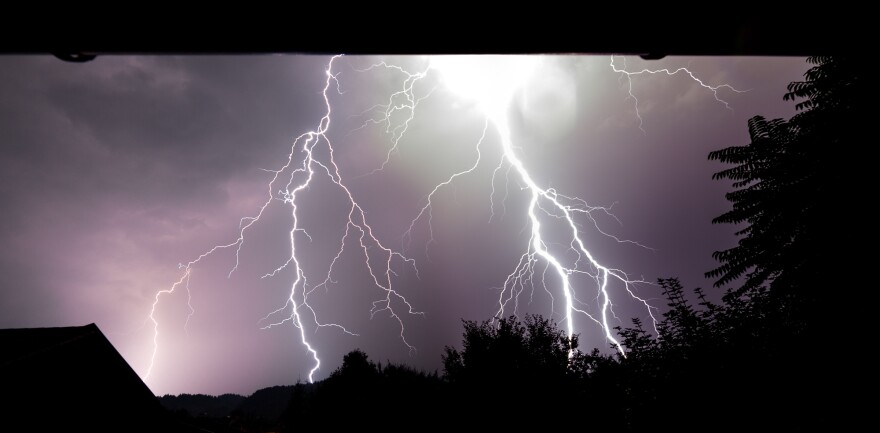Allergy season is expected to get worse in the Northeast with climate change. More heat, rain, and CO2 is causing plants to produce more pollen. Now you can add severe weather—and thunderstorms in particular—to the mix of bad news for allergy-sufferers.
Allergy researchers have uncovered a link between thunderstorms and severe asthma attacks. According to NOAA:
"A review paper published in the World Allergy Organization Journaldescribes a possible mechanism for the connection: thunderstorms carry pollen grains at ground level, and updrafts sweep those grains into the humid bases of storm clouds; the grains rupture and release allergy-inducing starch granules; the pollen fragments can be inhaled much more deeply into human airways than whole pollen grains would have been.
Identifying the impact of climate change on specific types of extreme weather events will require more research... especially since these events occur over small scales that are hard to predict. But where thunderstorms do strike, they pose a risk to people with allergic asthma. Most climate models project that heavy precipitation is likely to increase in a warmer world. If that increase in heavy rain comes via more thunderstorms, the risk of allergic asthma attacks may also rise."







